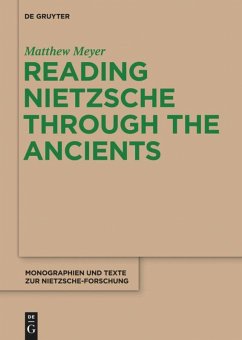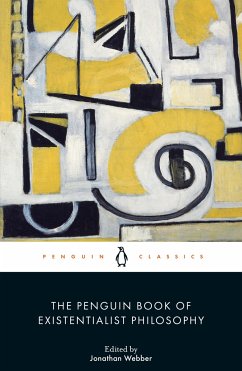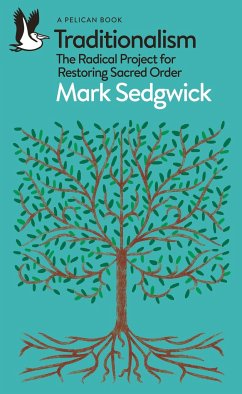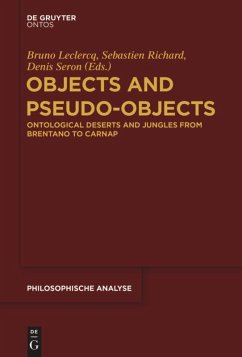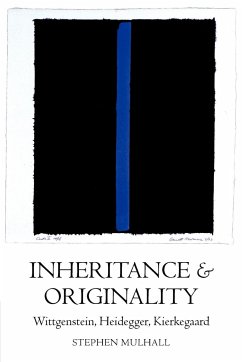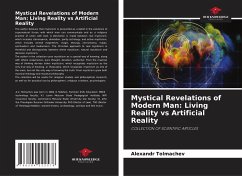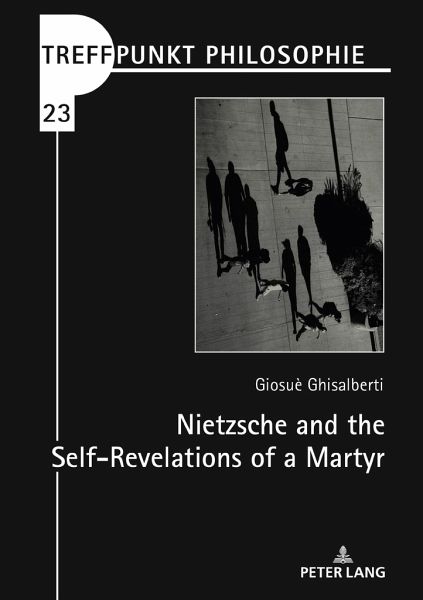
Nietzsche and the Self-Revelations of a Martyr
Versandkostenfrei!
Versandfertig in 6-10 Tagen
59,95 €
inkl. MwSt.

PAYBACK Punkte
0 °P sammeln!
The project examines the reasons for the many philosophical difficulties, and the failures, that Nietzsche sensed when he had concluded The Birth of Tragedy. The subsequent philosophical decision he made, on the way to reconceiving the classical ideas of tragedy, destiny, and martyrdom, allowed him to begin to conceive of what he would identify as a thinking devoted to affirmation. Everything he commits himself to writing after 1872, including the unpublished notes on myth from the Philosophenbuch, is a response to the disillusionment of his belief in Dionysos and the false promise of tragic a...
The project examines the reasons for the many philosophical difficulties, and the failures, that Nietzsche sensed when he had concluded The Birth of Tragedy. The subsequent philosophical decision he made, on the way to reconceiving the classical ideas of tragedy, destiny, and martyrdom, allowed him to begin to conceive of what he would identify as a thinking devoted to affirmation. Everything he commits himself to writing after 1872, including the unpublished notes on myth from the Philosophenbuch, is a response to the disillusionment of his belief in Dionysos and the false promise of tragic affirmation. The Greek god had become a problem and an obstacle. Sustaining him, as a philosophical idea, was going to prove to be highly mixed; the struggle would become relentless. The Greek god is, in many ways, impossible to believe in as an ideal, in antiquity or for the present; and for a specific reason: the connection between the institution of the Dionysian festival and the religious ritual of sacrifice could not be ignored by Nietzsche. His sense of a "Dionysian nausea" has been overlooked. Tragedy and sacrifice are a binding relation in the Greek polis. Nietzsche seems to recognize the fact and commits himself to directly confronting the tragedy/sacrifice relation in all his subsequent works and with the intent on being a unique, individual resource for the truth of his self-revelations. He identifies himself with a new conception of the martyr (the witness) in order to provide an alternative to the classical martyr as the victim of violence and death and who, moreover, is executed by the state. Socrates and Jesus are omni-present for him. Nietzsche presents himself as new world-historical alternative and the self-revelations of a witness for the individuals he will often call (especially in Thus Spoke Zarathustra) his friends and neighbours and disciples. Is the whole of his philosophical enterprise successful? Do his self-revelations lead to the creation of the free spirit and therefore give him some assurance about the future of his legacy? Or does his commitment to the eternal recurrence, for example, lead him to a terrible realization? The study presents the force of Nietzsche's thought as he created the resources, which he hoped could be effectively transferred to a reader, to begin to create an affirmative reality he defines from out of the fullness of the free spirit and the philosopher.





